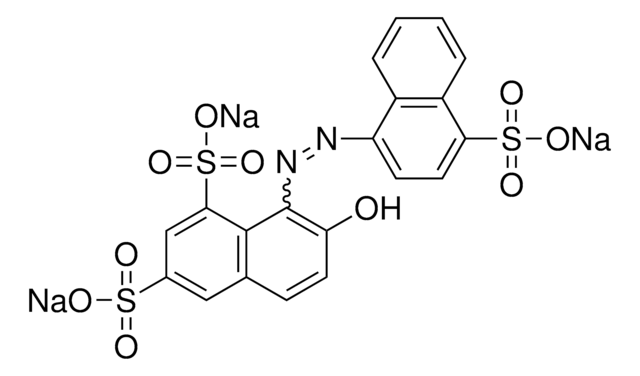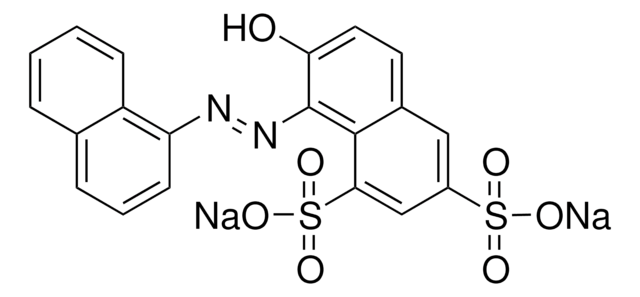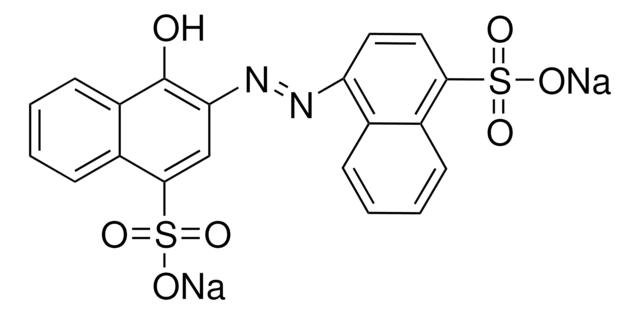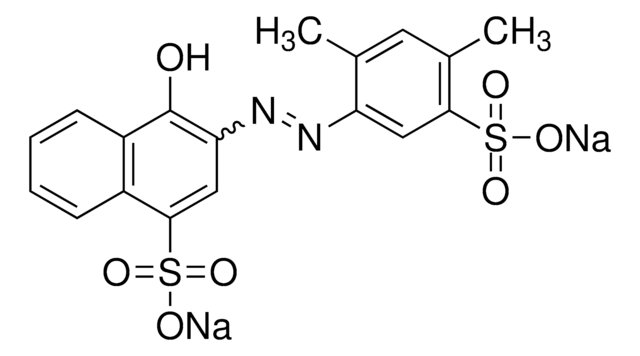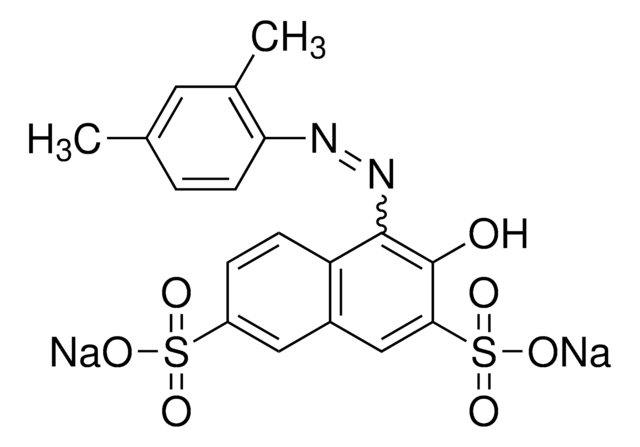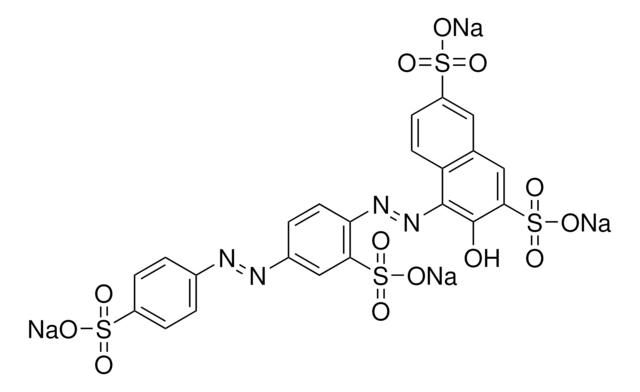96365
Ponceau 6R
analytical standard
Synonym(s):
Crystal Ponceau 6R, Acid Red 44, Brilliant Crystal Scarlet, Crystal Scarlet, Ponceau 6R
About This Item
Recommended Products
grade
analytical standard
Quality Level
Assay
≥98.0% (HPLC)
shelf life
limited shelf life, expiry date on the label
technique(s)
HPLC: suitable
gas chromatography (GC): suitable
mp
>300 °C (lit.)
application(s)
cleaning products
cosmetics
food and beverages
personal care
format
neat
SMILES string
[Na+].[Na+].Oc1ccc2cc(cc(c2c1\N=N\c3cccc4ccccc34)S([O-])(=O)=O)S([O-])(=O)=O
InChI
1S/C20H14N2O7S2.2Na/c23-17-9-8-13-10-14(30(24,25)26)11-18(31(27,28)29)19(13)20(17)22-21-16-7-3-5-12-4-1-2-6-15(12)16;;/h1-11,23H,(H,24,25,26)(H,27,28,29);;/q;2*+1/p-2/b22-21+;;
InChI key
FUGCXLNGEHFIOA-ZPZFBZIMSA-L
Looking for similar products? Visit Product Comparison Guide
General description
Application
- As a reference standard for the determination of synthetic food and beverages colorants by high-performance liquid chromatography coupled with diode-array detector.
- As a model compound for detailed study of the mechanism of an azo-dye degradation by soybean peroxidase enzyme (SBP).
Packaging
Recommended products
Storage Class Code
11 - Combustible Solids
WGK
WGK 3
Flash Point(F)
Not applicable
Flash Point(C)
Not applicable
Regulatory Listings
Regulatory Listings are mainly provided for chemical products. Only limited information can be provided here for non-chemical products. No entry means none of the components are listed. It is the user’s obligation to ensure the safe and legal use of the product.
JAN Code
96365-BULK:
96365-25MG:
96365-VAR:
Choose from one of the most recent versions:
Certificates of Analysis (COA)
Don't see the Right Version?
If you require a particular version, you can look up a specific certificate by the Lot or Batch number.
Already Own This Product?
Find documentation for the products that you have recently purchased in the Document Library.
Our team of scientists has experience in all areas of research including Life Science, Material Science, Chemical Synthesis, Chromatography, Analytical and many others.
Contact Technical Service